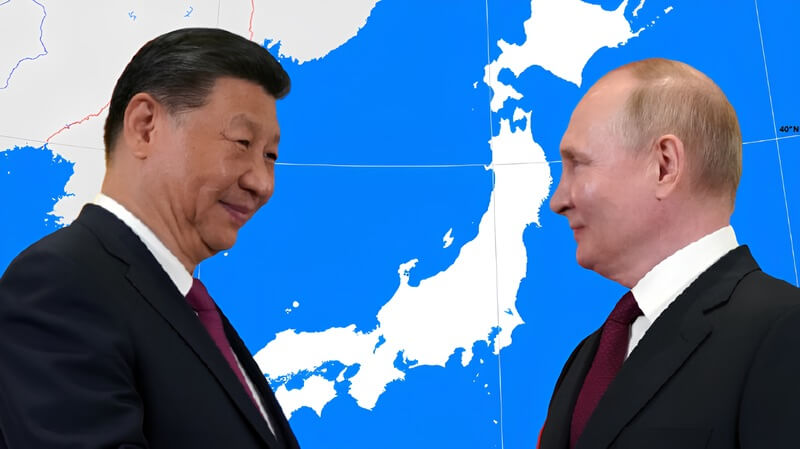As the Trump administration begins its second term, a concerning strategic maneuver is unfolding in the Indo-Pacific. Vladimir Putin’s recent tribute to the late Japanese Prime Minister Shinzo Abe on May29th, 2025 wasn’t mere diplomatic courtesy—it was a calculated move in a broader Russia-China campaign to drive a wedge between the United States and our most important and enduring Indo-Pacific ally.

Make no mistake: Moscow and Beijing are opportunists. They’ve identified a vulnerable moment in U.S.-Japan relations and are moving swiftly to exploit it. President Trump’s tariffs on Japanese automobiles and his administration’s ambiguous signals about Taiwan’s strategic importance have created openings that our adversaries are eager to exploit.
Putin’s sudden interest in reviving peace treaty discussions with Japan should raise red flags in Washington. Russia is dangling access to energy resources, fishing rights, and development opportunities in Siberia—all temptations for a resource-dependent Japan increasingly uncertain about America’s reliability.
This isn’t happening in isolation. After Beijing and Moscow formalized their “no limits” partnership in February 2022 precisely to challenge American influence in the Pacific. Their coordinated diplomatic offensives aim to convince Tokyo that aligning with authoritarian powers might offer more stability than depending on an unpredictable America.
The reality could not be farther from the truth.
Strategic analysts have long understood that American strength abroad requires consistent, reliable partnerships. The Trump administration’s America First approach has secured important concessions from allies who weren’t paying their fair share. But we must be careful not to push these tactics so far that we create openings for our adversaries.
Japan recognizes the danger. Its security establishment understands that Russia’s aggression in Ukraine establishes precedents that directly threaten Japan’s territorial integrity or its security interests such as peace and stability across the Taiwan strait. They see the connection between Russia’s actions in Eastern Europe and China’s ambitions in the East and South China Seas.
But alliances require maintenance. If we continue treating Japan as an economic competitor rather than a strategic partner, we risk watching one of America’s most important Pacific relationships deteriorate while our adversaries applaud.
The administration must balance its legitimate economic concerns with the strategic imperative of maintaining a united front against authoritarian expansion. Otherwise, Putin and Xi will continue their campaign to isolate America in a region critical to our national security and economic future.
Indo-Pacific alliances weren’t built overnight, but they could unravel quickly if we fail to recognize the sophisticated game being played by Moscow and Beijing. The question isn’t whether Russia and China are trying to separate us from our allies—it’s whether we’ll let them succeed.
Author: Dr. Stephen R. Nagy – Professor of Politics and International Studies at the International Christian University, specializing in Indo-Pacific geopolitics and great power competition, serving as a Visiting Fellow for the Hungarian Institute for International Affairs(HIIA), June 13th -August 30th, 2025.
(The views expressed in this article belong only to the author and do not necessarily reflect the editorial policy or views of World Geostrategic Insights).







